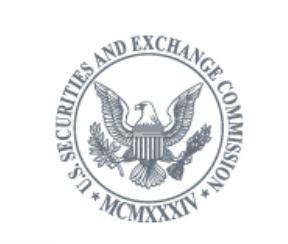SEC Rule Changes Adopt CFC Member Ideas
March 20, 2020
The Securities and Exchange Commission (SEC) recently voted to adopt amendments crafted by bipartisan Congressional Future Caucus pair Reps. Trey Hollingsworth (R-IN-9) and Ben McAdams (D-UT-4).

The Securities and Exchange Commission (SEC) recently voted to adopt amendments crafted by bipartisan Congressional Future Caucus pair Reps. Trey Hollingsworth (R-IN-9) and Ben McAdams (D-UT-4). The reforms will cut red tape for promising small businesses and startups, allowing them to focus on growth and avoid often expensive bureaucratic filings. Hollingsworth and McAdams first introduced these amendments in the form of H.R. 3886, the Fostering Innovation Act of 2019, in July of 2019. While the legislation never came up for a vote, both Congressmen have celebrated the decision of the SEC to advance their ideas through a rule change.
The proposed legislation introduced by Reps. McAdams and Hollingsworth on which the SEC rule change was modeled qualifies certain companies for the Section 404(b) exemption of the Sarbanes-Oxley Act of 2002. These qualified companies must have revenues under $50,000,000 in the most recent fiscal year, are not large accelerated filers, and are emerging growth companies that are within five years after their initial public offering. The exemption means that these institutions would still have to prepare a financial report but would not be required to provide an audit report. In a press release about the SEC ruling, Congressman Hollingsworth said that he was pleased that the Commission was carrying forward the mission of ensuring that small businesses “can invest in cures, not excessive compliance”. Hollingsworth also praised the SEC for going even farther than the proposed legislation by raising the revenue limit for provision of relief from $50,000,000 to $100,000,000. Congressman McAdams specifically discussed the bioscience sector in his own press release, saying that companies in the bioscience industry can now “keep vital capital working in research and development rather than costly regulatory requirements”. By allowing small and emerging businesses to focus their time and funding on their actual work instead of having to worry about audit reports, the SEC is promoting innovation and entrepreneurship by following through on common sense reform with support from both sides of the aisle.
Even though the success of this policy did not come through the passage of legislation, it is important to recognize the efforts of the bipartisan pair of Future Caucus members who made this reform possible. Commonsense reforms like this one are part of a platform of postpartisan ideas for which the Millennial Action Project has been advocating, and we are pleased to see movement in this area to help small businesses and entrepreneurs across the country.






Join 1,900+ BIPARTISAN LEADERS NATIONWIDE
Be a part of a network of lawmakers committed to governing effectively, passing more representative public policy, and increasing public trust in democracy.